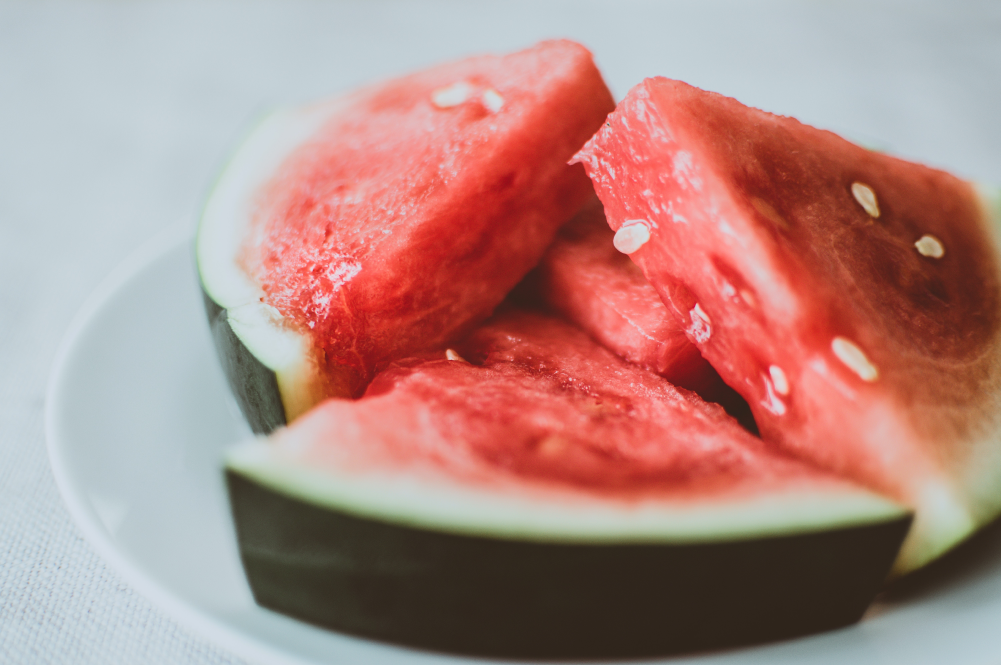Do you ever find yourself wondering if that juicy, sweet watermelon makes your bowels move? Well, you are not alone!
In fact, our research, quite surprisingly, shows that it’s a question asked by many people around the world. This blog post aims to answer this very question and delve into why watermelon has a reputation for making you poop.
We’ll discuss whether this pink fruit really causes changes in bowel movements or not and explore what factors could contribute to any such effects. So keep reading as we break down all there is to know about pooping related to eating watermelon!
Table of Contents
An Overview Of Constipation

Constipation is a prevalent gastrointestinal issue characterized by infrequent bowel movements or difficulty passing stool. It affects people of all ages and can be caused by various factors. One primary cause is a low-fiber diet, which hampers regular bowel movements by reducing stool bulk.
Dehydration, lack of physical activity, stress, and certain medications can also contribute to constipation. Left unaddressed, it can lead to discomfort and abdominal pain.
However, making simple lifestyle adjustments, such as increasing fiber intake, staying hydrated, and engaging in regular exercise, can often alleviate constipation.
But what is the relationship between watermelon and pooping more? Does this delicious pink fruit really play a role in easing or aggravating constipation? Make sure to read till the end, and find out everything you need to know!
Watermelon and Digestive Health

Watermelon, with its high water content and rich nutritional profile, can have a positive impact on digestive health. Let's explore its various aspects that contribute to a healthy digestive system.
Source of Hydration
One of the key factors that can influence bowel movements and overall digestive health is hydration. With its name fittingly derived from its water content, watermelon is an excellent source of hydration. Consisting of about 90% water, this juicy fruit helps keep the body well-hydrated, supporting the smooth passage of stool through the intestines.
Proper hydration can prevent constipation, as it softens the stool and makes it easier to pass. Including watermelon in your diet can be a tasty and refreshing way to stay adequately hydrated, especially during hot summer months when dehydration is more common.
Nutritious Benefits
Beyond its hydrating properties, watermelon packs a punch in terms of nutrition. It is a rich source of vitamins A, C, and B6, as well as essential minerals like potassium. These nutrients play vital roles in maintaining a healthy digestive system.
For instance, vitamin C supports the immune system, which indirectly affects gut health. Meanwhile, vitamin A helps maintain the integrity of the gastrointestinal lining, supporting proper digestion and nutrient absorption.
Additionally, potassium aids in muscle contractions, including those of the digestive tract, which contributes to regular bowel movements. With its delightful taste and nutritious goodness, watermelon can be a delightful addition to your diet to support overall digestive health.
Heart Health Improvements
Apart from its digestive benefits, watermelon also has a positive impact on heart health. This luscious fruit contains citrulline, an amino acid that converts to arginine in the body. Arginine helps relax blood vessels, promoting better blood flow and reducing blood pressure.
Additionally, watermelon is rich in antioxidants, such as lycopene, which can help reduce inflammation and oxidative stress in the cardiovascular system.
A healthy heart contributes to better circulation and blood supply to various organs, including the digestive system. By supporting heart health, watermelon indirectly aids in maintaining a robust and well-functioning digestive system.
Does Watermelon make you poop

Watermelon's high water content can indeed contribute to maintaining regular bowel movements. Staying hydrated is essential for a healthy digestive system, and the abundant water in watermelon helps soften stool and eases its passage through the intestines.
Furthermore, the fiber present in watermelon, though not as much as in some other fruits, can still provide a gentle boost to bowel regularity. Fiber adds bulk to the stool, promoting more efficient movement through the digestive tract.
As a result, adding watermelon to your diet can be a hydrating and digestion-friendly choice that may help alleviate constipation.
However, individual reactions to foods can vary, and some people may experience different effects. While watermelon can be beneficial for most, it's essential to observe how your body responds to it.
If you notice any digestive discomfort or irregularity, it might be best to moderate your watermelon intake or consult with a healthcare professional.
What Happens If I Eat Too Much Watermelon
While watermelon is a delicious and nutritious fruit, consuming excessive amounts of it can lead to certain issues.
One primary concern is the high water content in watermelon. Overindulgence in watermelon may cause an increased intake of water, which can lead to bloating and discomfort, especially if you have a sensitive digestive system.
Additionally, excessive water intake can disrupt the body's electrolyte balance, particularly if you don't balance it with sufficient intake of other essential minerals like sodium and potassium.
Furthermore, watermelon contains natural sugars, primarily fructose. Consuming large quantities of watermelon can result in a significant intake of fructose, which may not be well-tolerated by everyone.
Some individuals may experience bloating, gas, or even diarrhea due to the high fructose content. Moderation is the key to enjoying watermelon without facing these potential issues.
As with any food, it's essential to listen to your body and be mindful of how it responds to the quantity you consume.
Can Watermelon Give You Diarrhea
While watermelon is generally well-tolerated by most people, consuming excessive amounts or having certain sensitivities can lead to diarrhea in some cases. One of the potential causes of this is the fruit's high water content.
Overindulgence in watermelon can increase water intake significantly, potentially leading to loose stools and diarrhea, especially if your digestive system is not accustomed to handling such large quantities of water.
It's essential to be mindful of your watermelon consumption, particularly in situations where staying hydrated is crucial, such as during hot weather or intense physical activity.
Moreover, as mentioned earlier, watermelon contains natural sugars, including fructose. For individuals with fructose malabsorption or sensitivity to fructose, consuming watermelon can result in gastrointestinal discomfort, bloating, and diarrhea.
Fructose malabsorption is a condition where the body has difficulty absorbing fructose efficiently, leading to digestive issues when consuming foods high in this sugar.
Other Foods That Make You Poop
When it comes to promoting healthy bowel movements, various foods can lend a helping hand. Let's explore some of these natural aids that can keep things moving smoothly.
Probiotic Supplements
Probiotics are beneficial bacteria that support gut health by maintaining a balanced microbial environment. These supplements can be found in various forms, such as capsules, powders, or fermented foods like yogurt and kimchi.
Probiotics, like our IBSupport supplement, work by replenishing the gut with good bacteria, which can aid in digestion and contribute to regular bowel movements. They can be particularly useful for individuals experiencing irregularity or those seeking to improve their digestive health.
While probiotic supplements can be beneficial, it's essential to choose reputable products with strains that align with your specific needs and consult with a healthcare professional for personalized recommendations.
Orange Juice
Rich in vitamin C and natural fruit sugars, orange juice is not only a refreshing beverage but can also have a positive impact on bowel movements. Vitamin C acts as an antioxidant, supporting the immune system, which indirectly influences gut health.
Additionally, the natural sugars in oranges can have a mild laxative effect when consumed in moderation. However, it's essential to be mindful of the amount of orange juice you consume, as excessive intake of fruit sugars can lead to diarrhea or gastrointestinal discomfort in some individuals.
For those looking to add a dose of hydration and digestion-friendly nutrients to their diet, a glass of fresh orange juice can be a delightful choice.
Prune Juice
Prunes and prune juice have long been praised for their natural laxative properties, making them a popular choice for promoting regular bowel movements. Prunes are rich in dietary fiber, mainly soluble fiber called pectin, which helps add bulk to the stool and aids its passage through the intestines.
Additionally, prunes contain sorbitol, a sugar alcohol with a mild laxative effect. When consumed in moderation, prune juice can be a gentle and effective way to relieve constipation and support digestive health.
However, as with any remedy, it's crucial not to overdo it, as excessive prune juice consumption can lead to loose stools and gastrointestinal upset.
Bottom Line
All in all, adding watermelon, or any other food listed here can help you relieve constipation and have a better digestive health. Watermelon is a great way of providing your body with its necessary hydration levels, as well as to make sure that it's getting the right vitamins and minerals.
Not just that, but some of the additional benefits like improving heart health makes it even more desirable. The key thing is to not overdo anything; it doesn't matter if it's watermelon, probiotic supplements, or orange juice—eating too much will inevitably lead to different issues such as watery stools and/or diarrhea.
With that being said, having a few servings of these can only add more nutrients into your diet and provide your body with the needed hydration throughout the day.

